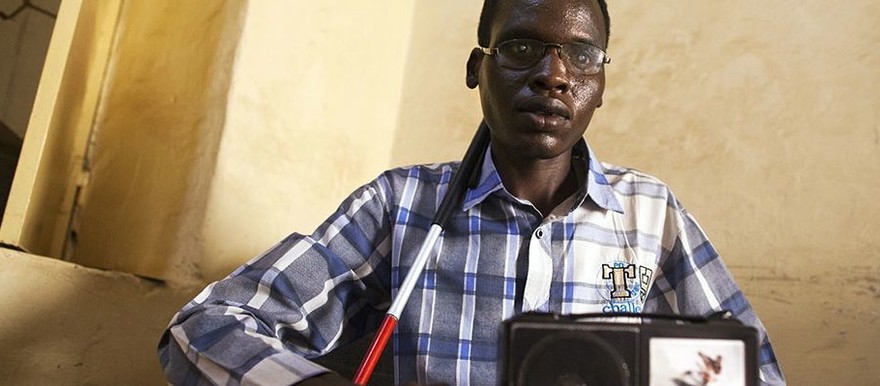Every morning Salah el-Din Abdurrahman Hassan heads out alone from his home at Abu Shouk displaced camp to the University of El Fasher. He uses public transport and his only support is a walking stick.
Salah is enrolled at the university studying for a bachelor’s degree in psychology.
At university, Salah records his professors’ lectures using a special audio recorder given to him by the Sudanese Association for Care and Rehabilitation of the Disabled. The recorder enables him to revisit his lectures at a later time.
“At times, I do face problems when the recorder fails or runs out of battery,” he admits. But he has managed to clear several exams already after being tested orally. “Oral exams are the only concession that I am given at the university,” he says.
Salah is unable to rely on books, pens or even a laptop computer. Also, braille materials are not available in Darfur.
But he has learned to use the audio recorder for his lessons and also his mobile phone and the social media applications available on it to help him keep in touch with friends and relatives. He says he has memorized the phone’s keypad and developed a unique system of sharing information through it.
“Technology… has really helped people like me, who have special needs, to fulfill their dreams.”
Besides studying at university, Salah is also a musician and songwriter, and he is the Cultural and Media Secretary of the Abu Shouk Youth Union as well as Secretary of the Sudanese Association for the Care and Rehabilitation of the Disabled.
He says that he hopes to become a community leader one day, responsible for developing a more sensitive attitude toward the disabled.
This story is adapted from an article published by Makarim Mohammed for the UN-African Union peacekeeping mission in Darfur (UNAMID), on the occasion of the International Day of People with Disabilities.




